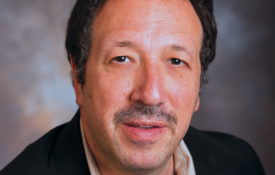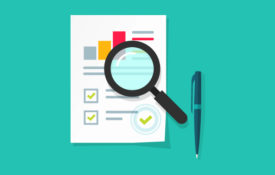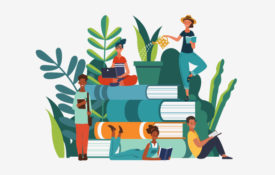-
Why Nobody Feels Rich: The Psychology Of Inequality
When Keith Payne was in the fourth grade, he realized he was poor. The epiphany came to him in the cafeteria. "We had a new cashier in the line that day," he said. "And when I got to the cashier's desk she asked me for, I think it was $1.25. That was the first time that anybody had ever asked me to pay for my lunch because I'd always been on free lunch." Keith had been blissfully unaware that many of his classmates were paying for their meals every day. But now, he began comparing himself with his peers. "It's not like I was poorer the day after that than I was before. Nothing objective had changed.
-

Clinical Psychological Science Editor Scott O. Lilienfeld (1960-2020)
The prolific scholar and APS James McKeen Cattell Fellow served as editor of Clinical Psychological Science from 2016 until late 2019.
-
Center for Advanced Study in the Behavioral Sciences 2021-22 Fellowships
The Center for Advanced Study in the Behavioral Sciences (CASBS) at Stanford University is now accepting applications for residential fellowships for the 2021–22 academic year. Applications from scholars and thinkers who are minorities broadly defined, women, and those who represent a wide variety of institutions and countries are encouraged. CASBS is particularly eager to receive applications from accomplished scholars and thinkers who engage with the significant societal challenges the Center focuses on, described here, and the research methods that support them.
-

New Research in Psychological Science
A sample of research on factors that predict faster spread of COVID-19, how optimism might decrease unethical behaviors during the pandemic, development of language perception, color-emotion associations, moral choice, decision making, and well-being and person-culture match.
-

Register and Report: Challenges in Bringing Basic Experimental Studies with Humans to ClinicalTrials.gov
While NIH positioned this change as part of a larger effort to increase registering and reporting of federally funded research studies, the Association for Psychological Science—among numerous other scientific and academic organizations, and thousands of individual scientists—was vocal in opposing the policy change as the best way of achieving that goal.
-

Beyond Diversity Training: To Change Minds, Change the Environment
Research suggests that taking steps to create more equal social environments may be more effective at reducing prejudice than targeting implicit bias directly.

